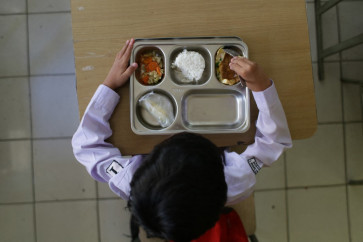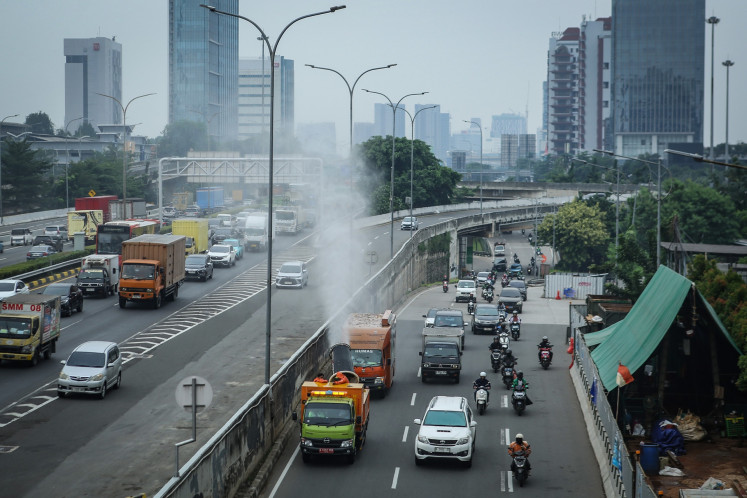Popular Reads
Top Results
Can't find what you're looking for?
View all search resultsPopular Reads
Top Results
Can't find what you're looking for?
View all search resultsPoverty, low HRD still haunt Meranti
Two years after separating from Bengkalis regency, Meranti Island regency in Riau Islands province is still desperately trying to deal with poverty and poor quality human resources
Change text size
Gift Premium Articles
to Anyone
T
wo years after separating from Bengkalis regency, Meranti Island regency in Riau Islands province is still desperately trying to deal with poverty and poor quality human resources.
Meranti Transmigration, Manpower and Social Affairs Agency head Irmansyah said that 30 percent of the regency’s population was living in poverty.
“There is still a long way to go. We need a large sum of funds and inter-sector coordination to fight poverty,” he said, adding that poverty deprives people of access to health services and leaves people with pathetic sanitation and environmental conditions.
Economically poor families mostly live in unhealthy environments, with homes having no floor tiles, exposing people to diseases such as dengue fever and diarrhea.
“The regency administration has been preparing programs. Among those are to provide 1,000 healthy lavatories and 1,000 healthy homes for economically poor families,” Irmansyah said.
He said that more sanitary homes were expected to curb infection from easily preventable diseases that often claimed lives.
Poverty has also been blamed for the low quality of human recourses in the region. Presently, almost half of the regency’s population had not completed elementary school.
Meranti Education Agency head Bakhtiar said the dropout rate among elementary school students was 41.9 percent. Only 24.7 percent of the regency’s population are elementary school graduates, only 15.8 percent had completed junior high school and just 14.2 percent had graduated from high school.
“The low quality of human resources has accounted for the high unemployment rate amidst a population growth rate of 0.6 percent annually over the last 10 years,” Bakhtiar said.
The condition is also blamed for the high increase in criminal activity, as 97 percent of some 300 inmates at the Selatpanjang Penitentiary are Meranti dropouts.
“It is quite possible that the high criminal rate is due to economic pressure and lack of education,” he said.
He expressed appreciation for initiatives by the Selatpanjang Penitentiary chief warden to offer Package A, B and C equalization courses to inmates, who upon release would have graduation certificates considered equal to elementary, junior high and senior high school diplomas.
“This will help them stay away from crime, as they have the certificates to start new lives upon release,” Bakhtiar said.
He added that although the regency had a total budget of close to Rp 1 trillion (US$117 million), the administration still found it difficult to address poverty and backwardness because of poor infrastructure.
“Both are of the same priority, need huge funds for realization and cannot be delayed because both also directly affect other sectors,” he said.










